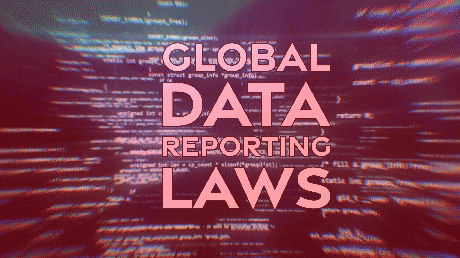Global Data Regulations for Creators to Watch
Updated April 16, 2025 | About 30% (not 50.3%) of Global GDP Require Tracing
Countries with about 30% of the world's GDP have adopted new sustainability reporting laws (The European Union, California, Japan and newly, Australia). Clearly, robust data reporting will be standard soon.
Where will that data come from? Which country will control it?
These new laws measure to transform governance, regulation, and management of the 100 trillion-dollar global economy. They will drive how products are made, brands compete, and businesses operate. We make the case that this is the most significant transformation of industrial, trade, climate, and consumer policies since the European Union's founding. Favoring a ground-up point of view supports consideration of reporting topics like blockchain suitability, Scope 3 data, and maker fairness. This matters because current solutions prioritize big fashion.
The EU's Green Deal + California | USA + Australia + Japan
The EU's strategy seeks a safe, prosperous, green, and digital future that decouples economic growth from resource consumption. The European Green Deal (EGD) is leading the transformation but is not alone. The Corporate Sustainability Reporting Directive (CSRD), requires listed companies to report data on their 2024 sustainability posture the following year. California's new SB-253 Climate Corporate Data Accountability Act and SB-261 Greenhouse Gases-Climate Related Financial Risk require disclosure of emissions and climate-related financial risks in 2026. In 2023, Japan's Financial Services Agency established the process for requiring sustainability disclosures that public companies must make. Indeed, most G-20 countries have regulations drafted for climate data reporting. In September 2024, Australia passed regulations for Scope 1, 2 & 3 tracing to begin in 2025. Simultaneously, rules on large economy cross-border data flows are formalized now in the EU, Japan, and China. In early 2025, the USA backed away from previous commitments.
The running total of countries requiring tracing is: Japan (5.5%), California | USA (25.4%), Australia (1.6%) and the EU (17.8%) account for about 50.3% of global GDP.
Because data wants to be free, we can analyze what happens to consumers and brands when there is pervasive supply chain data and radical transparency.
Impact
The EU's data-first, technology-driven strategy uses Digital Product Passports (DPPs) to rewrite, interconnect, align, and enforce legal frameworks around carbon neutrality, sustainable economies, strategic autonomy, fair competition, quality of life, circular economy principles, and national security. The Ecodesign for Sustainable Products Regulation (ESPR) is a big change agent because it builds a digital wall around the EU. Transformation crashes into politics because products without DPPs will be turned away at a customer's border.
Geopolitics
The EU's digital wall is a muscular flex extending beyond EU borders. The pandemic, Russia's invasion of Ukraine, a swaggering China, and the simple fact that other countries are not meeting carbon commitments hardened the EU's posture. The EU and other rich countries now regard materials and energy supply chains as part of national security. There will be knock-on effects of how a digital wall changes consumers, products, brands, and supply chains.
Bottom-up reporting means ground-up transformation and a positive vision for the full range of stakeholders.
I’ll add some new findings. Digital Product Passport solutions are required to use Grounded Theory Methodology, (GTM), which is a fancy way of saying bottom-up tracing. The technology needs to be NICT-compliant, which is a fancy way of saying “secure and interoperable”. My reading is that none of the current DPP service offerings meet either of these requirements.




